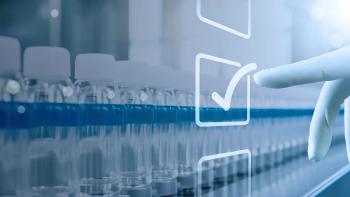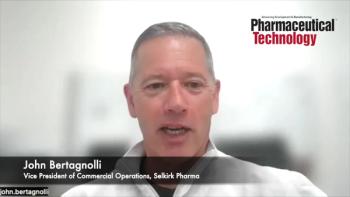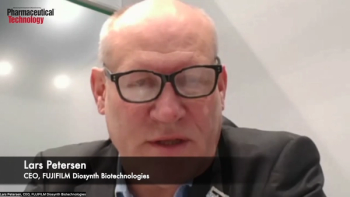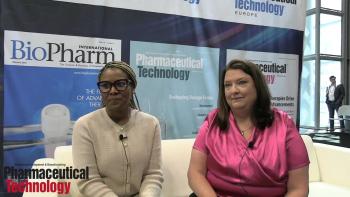
The new center's design will prioritize integration of the entire supply chain, with the aim of accelerating product development and autonomous production capacity in alignment with EU priorities.

The new center's design will prioritize integration of the entire supply chain, with the aim of accelerating product development and autonomous production capacity in alignment with EU priorities.

In this episode of the Ask the Expert video series, Peter Walters, Fellow of Advanced Therapies at CRB Group, discusses factors to be considered in constructing a new facility for cell and gene therapy production as well as using an existing facility to expand cell and gene therapy pipelines.

Lilly has increased its manufacturing investment for biologics in Limerick, Ireland, by $1 billion while launching its new $800 million facility in Kinsale.

During a presentation at the PDA/FDA Joint Regulatory Conference, Nicholas Violand of Johnson & Johnson and Paul Palmer of Paul R. Palmer Limited discussed how aging facilities can impact the quality of pharmaceutical products.

This is the company’s largest single investment in the Sweden Biomanufacturing Center, in Södertälje, which opened in 2021.

With a $15 million fund-raising goal, US Specialty Formulations plans to invest in expanding its biopharma facility in Allentown, Pa.

BioIVT has launched new cleanroom manufacturing space using Germfree’s technology that boosts its cell and gene therapies development capabilities.

Scorpius Holdings expects to launch its first CGMP campaign for mammalian-based biomanufacturing in the 2024 third quarter.

BeiGene has invested $800 million into a new biologics manufacturing facility in Hopewell, NJ, which also houses its clinical R&D capabilities.

The company plans to invest approximately €900 million (US$983 million) to expand its peptide platform at its Colorado, US, site and in Europe.

Novo Nordisk plans to invest $4.1 billion in a second fill/finish manufacturing facility in Clayton, N.C., boosting its current 2024 investments into production to $6.8 billion.

The $58 million investment has resulted in a 72,000-square-foot facility with a dedicated LC–MS space and molecular suites and will bring as many as 350 new jobs onto the campus.

John Bertagnolli, vice-president of Commercial Operations at Selkirk Pharma, discusses considerations when building and scaling up pharmaceutical facilities, including contamination control and aseptic processing challenges.

AGC Biologics has completed an expansion at its Copenhagen, Denmark, site, which doubles its bioreactor capacity for mammalian-based cell culture.

FUJIFILM Diosynth Biotechnologies CEO Lars Petersen highlights the company’s strategic goals and meeting market demand for mammalian cell culture capacity.

This new facility will allow AstraZeneca to offer full manufacturing processing for antibody drug conjugates.

As the industry adjusts to new regulations, including Annex 1, bio/pharma manufacturers must rethink facility designs to remain in compliance.

ADC manufacturing facilities are requiring more stringent containment requirements as well as advanced analytical detection.

Memel Biotech aims to offer a range of services from discovery through to formulation for preclinical through to late-stage clinical and commercial production of advanced therapies.

With the Vacaville, Calif., site acquisition, Lonza gains one of the largest biologics manufacturing sites for mammalian cell-based therapeutics.

Daiichi Sankyo is investing approximately €1 billiion (US$1.08 billion) to expand its Pfaffenhofen an der Ilm, Germany, site for ADC development and production.

Boehringer Ingelheim is investing €120 million (US$131 million) into its Koropi, Greece site to expand production for new therapeutics.

Novo Nordisk will invest more than DKK 16 billion (US$2.3 billion) to expand its production facilities in Chartres, France.

TAU Systems plans to establish TAU Labs, a new next-generation, laser-driven plasma accelerator laboratory, in Carlsbad, Calif.

MilliporeSigma has expanded its biosafety testing laboratories in Shanghai, China, with the completion of new lab space at its new €29 million (US$43 million) Biologics Testing Center.